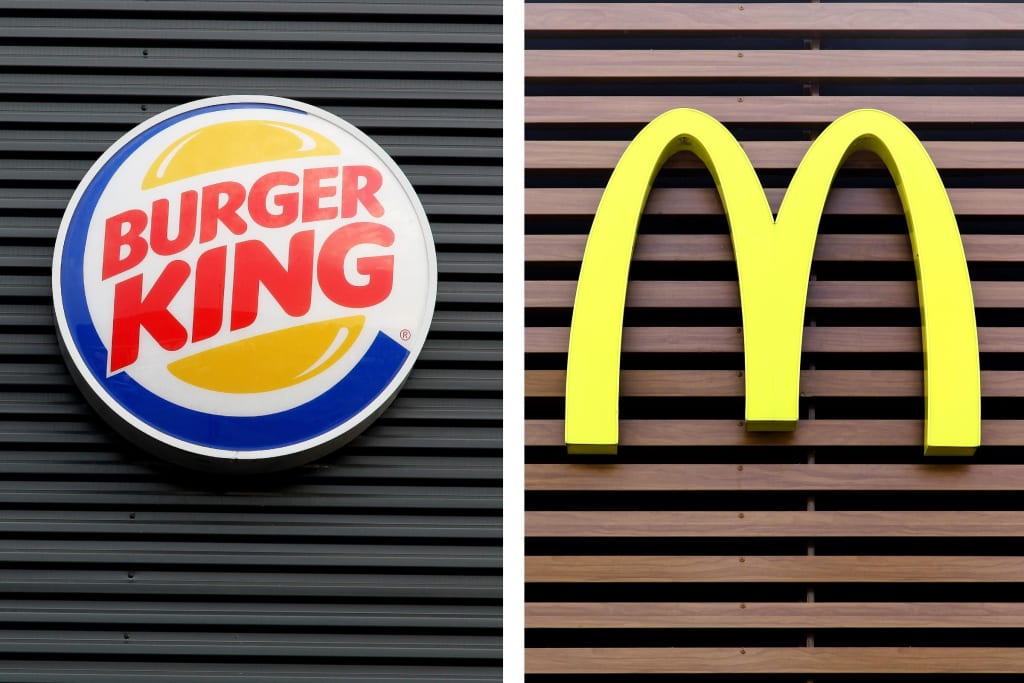The Fast Food Franchise Wars: McDonald's vs. Burger King
A comparison of the marketing tactics, menu innovations, and brand positioning of two of the largest fast food chains in the world.

Introduction
McDonald's and Burger King are two of the most well-known fast food chains in the world. With their iconic logos and menu items, these two companies have been competing for customers for decades. In this article, we will explore the history of the fast food franchise wars between McDonald's and Burger King, examine the strategies each company has employed, and analyze the factors that have contributed to their success and failures.
The Early Years
McDonald's was founded in 1940 by brothers Richard and Maurice McDonald in San Bernardino, California. The company's business model was based on speed, efficiency, and consistency. The brothers developed a system of assembly-line production that enabled them to serve large numbers of customers quickly and at a low cost.
Burger King, on the other hand, was founded in 1953 in Jacksonville, Florida by James McLamore and David Edgerton. The company's initial focus was on flame-grilled burgers, which they believed offered a distinct taste advantage over McDonald's.
The Franchise Wars
Throughout the 1960s and 1970s, McDonald's and Burger King engaged in a fierce battle for market share. McDonald's continued to expand rapidly, while Burger King struggled to keep pace.
In response to McDonald's dominance, Burger King began to differentiate itself by introducing new menu items and advertising campaigns. One of its most successful campaigns was the "Have it Your Way" campaign, which emphasized Burger King's commitment to allowing customers to customize their orders.
In the 1980s and 1990s, McDonald's and Burger King both faced new challenges from emerging competitors, such as Wendy's and Taco Bell. To combat these challenges, both companies continued to innovate and introduce new menu items, such as McDonald's Chicken McNuggets and Burger King's Whopper Jr.
In recent years, both companies have also faced new challenges from changing consumer preferences and health concerns. McDonald's has responded by introducing healthier menu options, such as salads and smoothies, while Burger King has focused on introducing plant-based menu items, such as the Impossible Whopper.
Successes and Failures
Both McDonald's and Burger King have enjoyed many successes over the years. McDonald's, in particular, has become one of the most recognizable brands in the world, with thousands of locations in over 100 countries.
However, both companies have also faced numerous challenges and failures. McDonald's has been criticized for its environmental impact and labor practices, while Burger King has struggled to keep pace with McDonald's in terms of global expansion.
Lessons Learned
The fast food franchise wars between McDonald's and Burger King offer several important lessons for businesses. One of the most important lessons is the importance of innovation and differentiation. Both companies were successful in part because they were able to differentiate themselves from their competitors and offer new and innovative menu items.
Another important lesson is the importance of marketing and branding. Both McDonald's and Burger King have invested heavily in advertising and branding over the years, which has helped them to build strong brand identities and loyal customer bases.
Finally, the fast food franchise wars also highlight the importance of responding to changing consumer preferences. Both companies have faced numerous challenges over the years, and their ability to adapt and respond to these challenges has been critical to their ongoing success.
Conclusion
The fast food franchise wars between McDonald's and Burger King have been raging for decades, and show no signs of slowing down anytime soon. Both companies have enjoyed many successes and faced many challenges over the years, but their ability to adapt and respond to changing consumer preferences has been critical to their ongoing success.
The lessons learned from the fast food franchise wars are clear: businesses need to innovate, differentiate, invest in marketing and branding, and respond to changing consumer preferences if they want to compete and succeed in the fast food industry.
About the Creator
Tyler Darelift
Hi, Im an Content Writer





Comments
There are no comments for this story
Be the first to respond and start the conversation.